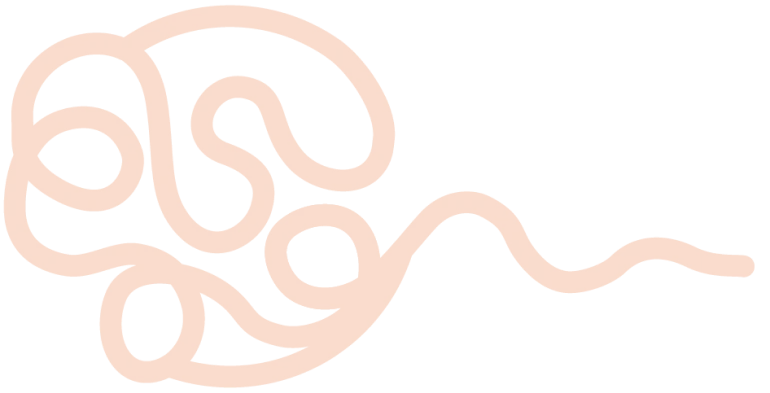I started working in the hospitality industry, whit hotels and restaurants, while studying economics and business in Rome. The first few years I did PR, then I opened the first pub called Escopazzo and then The Place, which was for years one of the most renowned clubs where Italian and foreign musicians performed. Finally I was the General Manager of Poltu Quatu, a beautiful destination in the north of Sardinia. When I was not even 50 years old, I retired. Finding a real formula for success for hotels and restaurants was really difficult.
I had not made much money but I was really bored, tired and stressed: the world of hospitality no longer felt like mine. If you do a job you like, you won’t work a day, said Confucius, and that had been the case for many years, but the last 2-3 amounted to hard labour.
In this article
The success formula
Following my ‘retirement’ from the hospitality industry, I started looking around. I am a very curious and dynamic person, so I couldn’t stay idle for long. At that time, I was fascinated by the world of innovative start-ups, full of brilliant and enlightened people who were revolutionising the world with their ideas and their ability to translate them into practice.
I too wanted to be part of it and so I thought of developing the Tinder of Hospitality, an app called ALGORE that was supposed to “match” job seekers with hotels and restaurants selected by an algorithm. Algore was an innovative startup focused on aligning supply and demand for jobs in the hospitality industry.
In hindsight it was both a beautiful and impossible project at the same time, as the economic resources I had at my disposal were scarce and the team I had recruited was working on the project ‘in their spare time’. After a year and a half, the project failed.
Nevertheless, one of the lessons I took home from this period is that innovative start-ups have a better chance of succeeding when three conditions are met: there must be excellent people who decide to turn a ‘disruptive’ idea into an extraordinary product or service, using digital marketing to promote it within a specific niche market.
A seemingly simple formula now, which I have metabolized with difficulty, but which is recurrent in all activities that achieve important goals. And the next step could only be to import this lesson into the hospitality industry, along with what I had learnt and continue to learn from the world of innovative start-ups.
If the world has changed and is becoming increasingly digital and technological, why should the business model of hotels and restaurants remain anchored in the past?
The search for the formula for success for a hotel is a bit like the search for the holy grail and has fascinated me throughout most of my professional life.
I felt like a restaurateur and hotelier who was very knowledgeable about PRODUCT. In fact, if I had to ‘crunch the numbers’ and summarise my professional life, I could boast
- 25 years of experience in the world of hospitality
- 2500 nights spent in hotels over the last 15 years
- 2,500,000 meals served in restaurants that I have managed directly or indirectly.
Clearly I also felt prepared about people, i.e. employees since, as Steve Jobs used to say, “to make an A product you need an A team!”
Yet the businesses I ran never ‘cracked’. After studying and working in the world of innovative start-ups the circle came full circle: I realised that if you want to be successful, besides People and Product you need a third pillar, Marketing. These 3 are the key elements of the formula for success for hotels and restaurants.

People
It is increasingly difficult to find passionate people who want to enter the profession of a cook or waiter. This phrase is on the lips of all entrepreneurs and managers working in the hospitality industry.
Good employees are in short supply today: finding a Chef, a Waiter, a Housekeeper or a Concierge is increasingly difficult, for various reasons.
I have my own idea: the world has changed. If you have a smartphone in your hand you can travel, you can learn, you can study, you can compare, and so you are no longer content to make a living as an extra, you look for a project to marry and serious ownership.
Once upon a time you started out as a cook or waiter with the idea of setting up your own restaurant because your employer became an example to emulate.
Today, who would want to become a modern-day restaurateur? Who would aspire to have the same responsibilities and satisfaction? So why would you choose to do a tiring and stressful job, one that keeps you busy every day and leaves little room for your private life?
I do not want to dwell on this issue any further, as I have learnt to focus on the things I can control and not on those outside my control.
To solve this problem our politicians should intervene and, even at the risk of becoming unpopular, they should modernize labor regulations that are now anachronistic. If you are in order it is difficult to be competitive and if you are not in order sooner or later you will pay the consequences.
The few professional staff are attracted to quality projects or to projects where they earn more money through high tips (which would be outlawed!). Consequently, if you don’t have a starred restaurant or a state-of-the-art hotel, you can make the sign of the cross and be content to work with unprofessional and motivated staff, whom we in Rome call ‘runaways’!
I am writing this with full knowledge of the facts, since in the ‘Caro Collega‘ method there is also help with personnel selection, where I am personally involved.
I personally think that a solution could be to concentrate shifts on 5 days a week, or by organising two different teams for lunch and dinner: ‘old-fashioned’ employees willing to work double shifts for 6 days a week are no longer there!
Remember that treating co-workers the same way you would like them to treat customers in the long run will prove to be a winning move. Satisfied employees who feel part of the project perform better than those who are not motivated, whose only aim is to get their salary at the end of the month.
Obviously, increasing the number of collaborators means billing more and thus committing to develop the untapped potential of your business, which is the main theme of the book on Digital Marketing opportunities that I am about to publish.
There you have it, the first component of the success formula for hotels and restaurants is people.
Product
Here is the second element of the formula for success for hotels and restaurants. On several occasions I have spoken of the unfair competitive advantage that we have in Italy in the hospitality sector thanks to the artistic, cultural, landscape as well as food and wine beauty.
The aim that we share with the young people of the ‘Dear Colleague’ project is to contribute to the defense of Italy’s food and wine heritage, as well as its landscape, art and culture, which are under threat from increasingly global competition.
In Italy, according to the FIPE 2022 (Federazione Italiana Pubblici Esercizi – Italian Federation of Public Establishments) report, we have about 350,000 activities that administer food and beverages, while the number of accommodation establishments surveyed in 2022 is about 230,000 with a capacity of over 5,200,000 beds.
Numbers increasing every year, which means that:
- competition will become increasingly fierce
- product will play an increasingly central role in the diversification process needed to emerge
When they call us for advice we always start with the study of the product and the coherence that there must be with a niche audience. It was not easy for me to grasp this concept and today it is even more difficult to make my former colleagues understand it.
“Everybody’s product is nobody’s product,” says one of the most enlightened marketers I have met on my journey, Seth Godin.
So no more restaurants and hotels that cater to a mass audience, you have to go vertical as much as possible! This is why I always try to choose to work together with former colleagues who show the necessary attitude to question themselves and step outside their comfort zone.
Identifying ‘buyer personas’, i.e. a sketch of the ideal customer type that best suits a proposal, is necessary to structure an appropriate marketing and communication activity.
The Integrated Digital Marketing
Finally, the last element of the formula for success for hotels and restaurants. If on the People or Product side every entrepreneur or manager in the industry feels ‘confident’ to express his or her point of view and outline a plan of action, when it comes to Marketing very few know what it means and what to do.
This was a big limitation for me too, with the aggravating factor that at university, Marketing was one of my favourite subjects. Of course it was Traditional Marketing and not Digital Marketing. Today, the audience for any business is ‘online’ so it no longer makes sense to advertise on TV, radio, in newspapers, in trade magazines, through billboards or leaflets.
Doing Digital Marketing means dealing with SEO (search engine optimisation), Content Marketing, Social Media Management, Copywriting, Ads, in short, all the tools we have at our disposal to reach our target audience. And there is no such thing as a ready-made recipe or tools that work better than others, we need to study the market, find the combination of tools best suited to our specific case and network the operation, because improvement is always possible.
What does digital marketing mean to you? Contact us if you have doubts or considerations to share.
Article written by Giancarlo De Leonardo, former hotelier & restaurateur and Founder of carocollega.com
